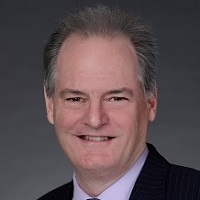Two More Fake Law Firms Discovered – Now 4 in Total (3 in Toronto and 1 in Ghana)
Further to our post on AvoidAClaim yesterday (Fake Toronto law firms tied to an international inheritance collection scam), we have discovered another fake Toronto firm and another fake firm purportedly in Ghana. All four of these firms have websites are all virtually identical. The names and URLs for the fake firms are as follows:
- Hubbel and Steven LLP hubbelsteven.com
- Vaughan and Palmer www.vaughanandpalmer.com
- Farrell Mallon and Co Solicitors farrellmalonlaws.com
- William Mensah Chambers williammensahchambers.com
Some of the text on these sites appears to have come from a national Canadian firm and a well-known Atlantic Canada law firm. Some of the lawyer bio content appears to have come from the same Altantic Canada law firm. These sites look very professional. They include area of practice information, lawyer biographies, contact information (street addresses, email addresses, phone and fax numbers) and even RSS feeds. They are very convincing, other than the fact that the group photo of the partners is actually a cast photo from Law and Order UK.
We learned of the first fake firm when a Toronto lawyer informed us of a website being used to lend legitimacy to an inheritance collection scam targeting a person in Europe. The target of the scam dealt with a European lawyer who in turn contacted a Toronto lawyer he knew from prior dealings. Our investigations lead us to the other three sites. Contact information in domain name registrations lead us to another site that is no longer operating.
We assume all four of these sites are being used for similar scams, although at this time we are not aware of anyone in Ontario being targeted. However, it serves as a reminder of the international nature of fraud attempts and how easy it is to mimic real firms to lend a scam some legitimacy.
Cross posted on AvoidaClaim



Now if only we could make sure that the world knew we don’t use gavels here in Canada, there’d be no doubt that these firms are phony.
This is actually very disturbing to me, because it potentially affects the credibility and legitimacy of the legal profession itself.
A law society directory is the most obvious place that the public should use to confirm the identity and standing of a lawyer, but not all clients are aware that such resources exist.
More importantly, if we see a proliferation of these fake law firm websites, there’s a potential for the Internet to be cluttered with misinformation about legal services and practitioners.
In some ways this is an advance warning, and an opportunity for those who want to take on this challenge proactively. The astute consumer of the future will hopefully be on guard and will actively be looking for these types of scams. They will gauge credibility and authenticity on the basis of independent verification.
What this means is that lawyers will have to post more rich media about themselves, including photos, videos, and recreational activities. They will have to be real people online.
The era of the surreptitious legal practice is coming to a close.
Law societies need to do a much better job communicating the existence of official lawyer directories to the public. Even better, these directories (e.g. Lawyer Lookup in BC or LSUC’s Lawyer Directory) could provide far better value to practising members. Would it be too much to ask for practice profiles and a full set of contact information?
If the law societies can’t overcome their directory aversion, the CBA needs to provide a full-featured alternative. The member-only printed lawyer directories are a quaint anachronism within the profession, but the public needs a better method for vetting professionals with the regulatory bodies. It is absolutely necessary that it be public. A pay-wall won’t work.
Besides improving official lawyer directories, I propose that each law society offer a LinkedIn-type badge that practising lawyers could use on their websites. It would link to the lawyers’ profile on the law society website. The law societies could then communicate the value of this badge to the public.
If scammers start spoofing law society websites, then I think Omar’s reference to rich media will be one of the public’s (and the profession’s) few defences.